
The 1996 United States presidential election was the 53rd quadrennial presidential election, held on Tuesday, November 5, 1996. Incumbent Democratic President Bill Clinton defeated former Senate Majority Leader Bob Dole, the Republican nominee, and Ross Perot, the Reform Party nominee and 1992 Independent presidential candidate.

The 1992 United States presidential election was the 52nd quadrennial presidential election, held on Tuesday, November 3, 1992. Democratic Governor Bill Clinton of Arkansas defeated incumbent Republican President George H. W. Bush and independent businessman Ross Perot of Texas. The election marked the end of a period of Republican dominance in American presidential politics that began in 1968,, and also marked the end of 12 years of Republican rule of the White House, as well as the end of the Greatest Generation's 32-year American rule and the beginning of the baby boomers' 28-year dominance until 2020. It was the last time the incumbent president failed to win a second term until Donald Trump in 2020.

From February 10 to June 9, 1992, voters of the Democratic Party chose its nominee for president in the 1992 United States presidential election. Arkansas Governor Bill Clinton won the nomination through a series of primary elections and caucuses culminating in the 1992 Democratic National Convention held from July 13 to July 16, 1992, in New York City.
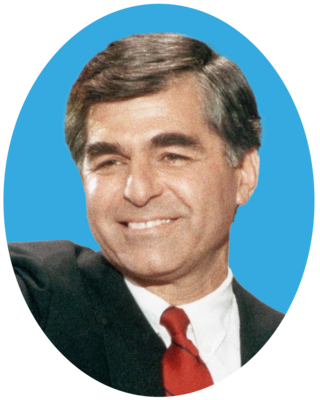
The 1988 Democratic National Convention was held at The Omni in Atlanta, Georgia, from July 18 to 21, 1988, to select candidates for the 1988 presidential election. At the convention Governor Michael Dukakis of Massachusetts was nominated for president and Senator Lloyd Bentsen of Texas for vice president. The chair of the convention was Speaker of the U.S. House of Representatives Jim Wright.
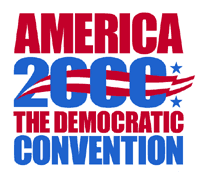
The 2000 Democratic National Convention was a quadrennial presidential nominating convention for the Democratic Party. The convention nominated Vice President Al Gore for president and Senator Joe Lieberman from Connecticut for vice president. The convention was held at the Staples Center in Los Angeles, California from August 14 to August 17, 2000. Gore accepted the presidential nomination on August 17, the final night of the convention.

The 2004 Democratic National Convention convened from July 26 to 29, 2004 at the FleetCenter in Boston, Massachusetts, and nominated Senator John Kerry from Massachusetts for president and Senator John Edwards from North Carolina for vice president, respectively, in the 2004 presidential election.
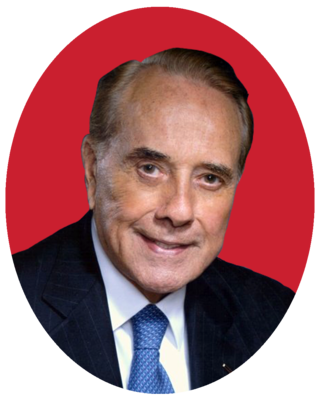
The 1996 Republican National Convention convened at the San Diego Convention Center (SDCC) in San Diego, California, from August 12 to August 15, 1996. The convention nominated former Senator Bob Dole from Kansas, for president and former Representative and secretary of Housing and Urban Development Jack Kemp, from suburban Buffalo, New York, for vice president.
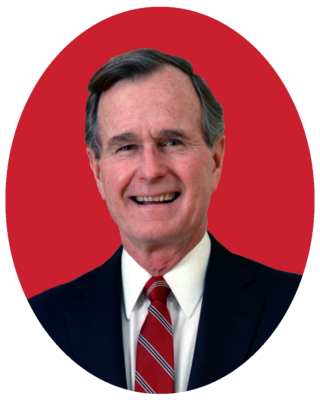
The 1992 Republican National Convention was held in the Astrodome in Houston, Texas, from August 17 to August 20, 1992. The convention nominated President George H. W. Bush and Vice President Dan Quayle for reelection. It was Bush's fourth consecutive appearance as a candidate on a major party ticket; only Bush and Franklin D. Roosevelt have been nominated on four consecutive presidential tickets. Richard Nixon and Roosevelt were nominated five times, but not consecutively.
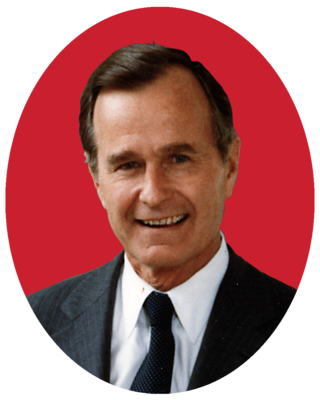
The 1988 Republican National Convention was held in the Louisiana Superdome in New Orleans, Louisiana, from August 15 to August 18, 1988. It was the second time that a major party held its convention in one of the five states known as the Deep South, coming on the heels of the 1988 Democratic National Convention, which was held in Atlanta, Georgia.

The 1992 presidential campaign of Bill Clinton, the then-governor of Arkansas, was announced on October 3, 1991, at the Old State House in Little Rock, Arkansas. After winning a majority of delegates in the Democratic primaries of 1992, the campaign announced that then-junior U.S. senator from Tennessee, Al Gore, would be Clinton's running mate. The Clinton–Gore ticket defeated Republican incumbent President George H. W. Bush and Vice President Dan Quayle in the presidential election on November 3, 1992, and took office as the 42nd president and 45th vice president, respectively, on January 20, 1993.
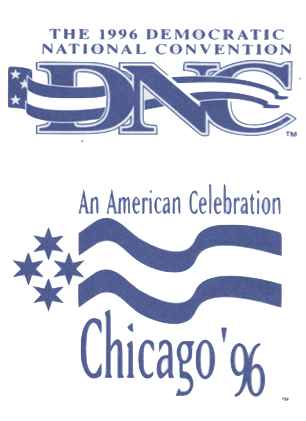
The 1996 Democratic National Convention was held at the United Center in Chicago, Illinois, from August 26 to August 29, 1996. President Bill Clinton and Vice President Al Gore were nominated for reelection. This was the first national convention of either party to be held in Chicago since the disastrous riots of the 1968 Democratic convention, and as of 2020, the most recent presidential convention held in the city by either major party.

The 2008 Democratic National Convention was a quadrennial presidential nominating convention of the Democratic Party where it adopted its national platform and officially nominated its candidates for president and vice president. The convention was held in Denver, Colorado, from August 25 to 28, 2008, at the Pepsi Center. Senator Barack Obama from Illinois gave his acceptance speech on August 28 at Invesco Field in what the party called an "Open Convention". Denver last hosted the Democratic National Convention in 1908. Obama became the party's first nonwhite nominee, and nominee of African descent, for president. Senator Joe Biden from Delaware was nominated for vice president.
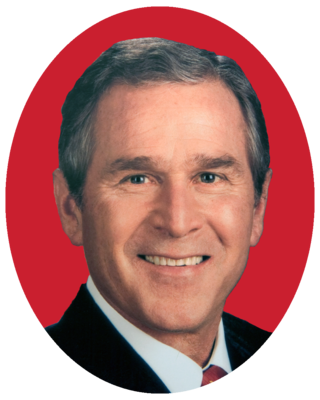
The 2000 Republican National Convention convened at the First Union Center in Philadelphia, Pennsylvania, from July 31 to August 3, 2000. The 2,066 delegates assembled at the convention nominated Texas Governor George W. Bush for president and former U.S. Secretary of Defense Richard B. "Dick" Cheney for vice president.

The 1984 Democratic National Convention was held at the Moscone Center in San Francisco, California from July 16 to July 19, 1984, to select candidates for the 1984 United States presidential election. Former Vice President Walter Mondale was nominated for president and Representative Geraldine Ferraro of New York was nominated for vice president. Ferraro became the first woman to be nominated by either major party for the presidency or vice presidency. In another first, the 1984 Democratic Convention was chaired by the female governor of Kentucky, Martha Layne Collins. The Democratic National Committee Chairman at the time, Charles T. Manatt, led the convention.
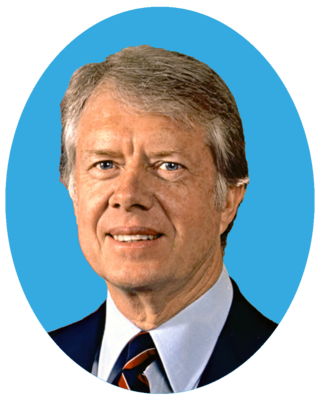
The 1976 Democratic National Convention met at Madison Square Garden in New York City, from July 12 to July 15, 1976. The assembled United States Democratic Party delegates at the convention nominated former Governor Jimmy Carter of Georgia for president and Senator Walter Mondale of Minnesota for vice president. John Glenn and Barbara Jordan gave the keynote addresses. Jordan's keynote address made her the first African-American woman to deliver the keynote address at a Democratic National Convention. The convention was the first in New York City since the 103-ballot 1924 convention.

The 1956 Democratic National Convention nominated former Governor Adlai Stevenson of Illinois for president and Senator Estes Kefauver of Tennessee for vice president. It was held in the International Amphitheatre on the South Side of Chicago from August 13 to August 17, 1956. Unsuccessful candidates for the presidential nomination included Governor W. Averell Harriman of New York, Senator Lyndon B. Johnson of Texas, and Senator Stuart Symington of Missouri.
The following is a schedule of the 2008 Democratic National Convention that was held from August 25 to August 27 at Pepsi Center and on August 28 at INVESCO Field at Mile High in Denver, Colorado.
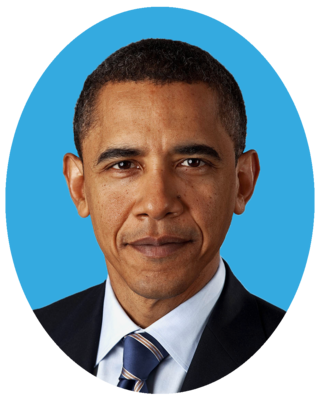
The 2012 Democratic National Convention was a gathering, held from September 4–6, 2012, at the Time Warner Cable Arena in Charlotte, North Carolina, in which delegates of the Democratic Party nominated President Barack Obama and Vice President Joe Biden for reelection, in the 2012 United States national election.

The 2016 Democratic National Convention was a presidential nominating convention, held at the Wells Fargo Center in Philadelphia, Pennsylvania, from July 25 to 28, 2016. The convention gathered delegates of the Democratic Party, the majority of them elected through a preceding series of primaries and caucuses, to nominate a candidate for president and vice president in the 2016 United States presidential election. Former U.S. Secretary of State Hillary Clinton was chosen as the party's nominee for president by a 54% majority of delegates present at the convention roll call securing it over primary rival Senator Bernie Sanders, who received 46% of votes from delegates, and becoming the first female candidate to be formally nominated for president by a major political party in the United States. Her running mate, Senator Tim Kaine from Virginia, was confirmed by delegates as the party's nominee for vice president by acclamation.

This article lists those who were potential candidates for the Democratic nomination for Vice President of the United States in the 1992 election. On June 2, 1992, Arkansas Governor Bill Clinton won the 1992 Democratic nomination for President of the United States, and became the presumptive nominee. On July 9, 1992, Tennessee Senator Albert Gore Jr. was chosen as his running mate.


























